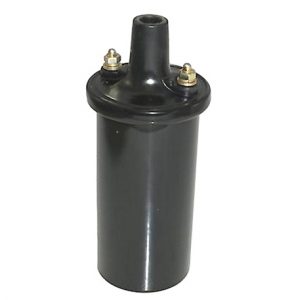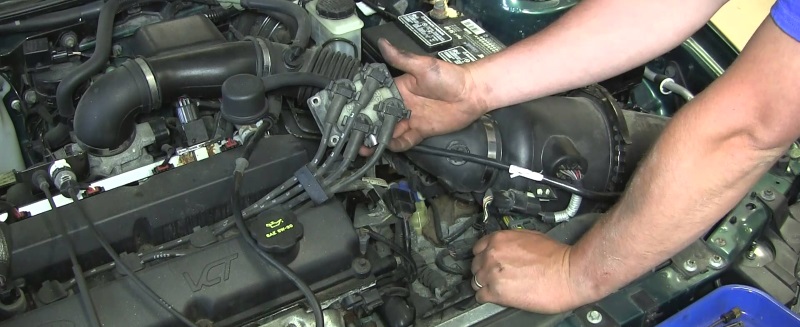What does the car engine ignition coil do?

Your car’s ignition system is responsible for igniting the air/fuel mixture inside your engine. This gives your engine the necessary power to start when the keys are turned. The ignition coil (or spark coil) is a key part of your ignition system which works alongside your spark plugs, and distributor to deliver a spark to your engine’s combustion chamber.
The purpose of the ignition coil is to transform the battery’s low voltage (12 volts) into a higher voltage (over 50,000 volts) so that the spark plugs can create a spark and ignite the air/fuel mixture. This allows fuel to burn correctly, providing your car engine with the necessary power to run.
Connected to the ignition coil are several wires. In the event that the ignition coil is broken, these wires may sustain damage, as well as other parts of your ignition system such as the spark plugs. A damaged ignition coil can also cause misfires, which can damage your car’s catalytic converter over time. For this reason, mechanics will often replace several other components when a car ignition coil service replacement is performed.
Learn more about the ignition coil >
Causes of ignition coil damage:
Spark Arcing – a common problem for many ignition coils as they age, or if there is an open circuit in the spark plug circuit is the high voltage spark jumping across the coil terminals. This can often been seen as a mark from the high voltage output of the coil to the 12 volt terminal or any ground point near the coil. If you see this you will need to replace the coil as temporary fixes such as insulating the arcing area generally wont last.
Primary winding open or short circuited – an ignition coil has two winding. The ignition coil primary winding is the low voltage winding at around 12 volts. The winding generally has a low resistance (around 1 to 3 ohms). The ignition coil secondary winding is the high voltage winding which has a much higher resistance.
Damaged wiring – Sometimes, the electrical components can become damaged, showing the same symptoms of a broken ignition coil. In this case, you may not need a new ignition coil.
Symptoms of a damaged car engine ignition coil:
Misfiring engine – A misfire occurs when your vehicle’s engine misses a process in its combustion cycle, causing unburnt fuel to go into the exhaust and atmosphere. A faulty ignition coil can cause the fuel to not spark correct and misfire as a result.
Check engine light – A faulty ignition coil can result in fuel not burning as it should. The incorrect burning of fuel will trigger the check engine light on your dashboard.
Car not starting – A broken ignition coil will not be able to provide all the spark plugs with the necessary voltage. This can prevent your car from starting at all.
New Car Engine Ignition Coil & Installation Service in Hamilton
Is your car showing symptoms of a bad ignition coil? If so, we can help!
At Grimmer Motors, we can perform ignition coil testing and diagnostics. This allows us to identify any problems in your car’s ignition system. If the engine ignition coil is the problem, we can provide high-quality ignition coil installation, replacement and servicing. This means we will a new ignition coil (as well as necessary wiring) which will last the test of time.
For reliable, effective ignition coil replacement in Hamilton, contact Grimmer Motors today!

